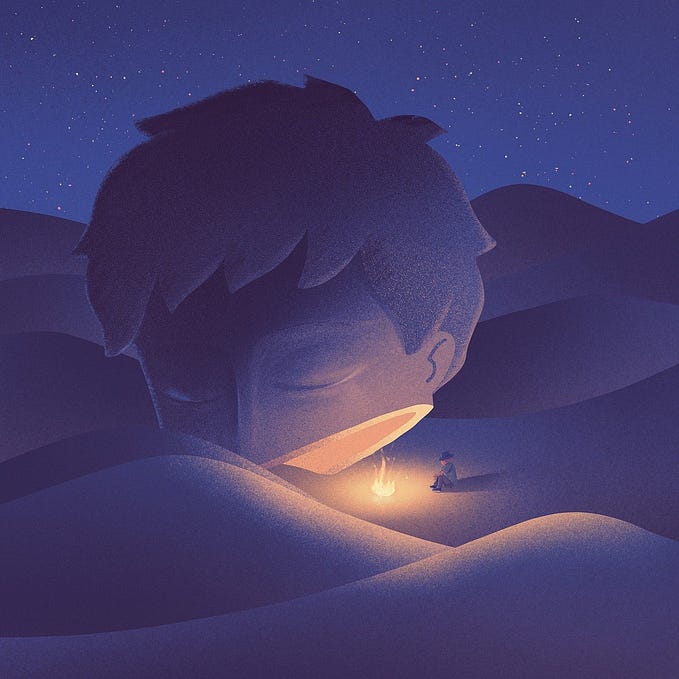Founders Kitchen Sink: Lifetime tips to consider before you start an online business
For over 5 years, I’ve been helping people to build their IT projects. During that time, I’ve learned a lot both from my clients as well as from projects I’ve been taking part in. I’ve decided to share my knowledge as I believe it will be useful for all of those who are thinking or are in-the-middle of creating their projects.

New challenges keep me running, so I’ve decided to begin a side project where I will show how I’m creating an actual SaaS project. Almost like inception. To make it even more challenging for myself, I’ve decided to record some video content… Some of you will have a chance to make some laugh at my ponglish accent :)
It took me a while to figure out everything about this project because there are a lot of things to be considered before starting such a live-case-scenario, to make the whole process a little bit more appealing. The first thing I was struggling with was how to approach the perspective from which I’ll explain everything. To be able to show all the aspects, especially those that are omitted by SaaS case scenarios that are showing how successful the project is, I’ve decided to wear the founder hat- a person who initiates the process of creation. Even take one step back, to the origins of the idea the founder is dreaming of creating.
While running the software agency, I’ve come across three types of founders which are individuals, teams and companies. Depending on the group, the founder falls in, the project gets a particular kind of flow. Here are the results of my observations while working with the founders.
Let’s consider the first one — the company. Why is the company creating a new SaaS project? And I’m not thinking about the companies that are doing SaaS platforms daily. I’m thinking about the companies that operate in a particular market, in a specific industry, and they have their own product or services. The reason why companies decide to make a new product is that they identify the market need or they have clients that are giving them feedback that there is a need so they would like to fill that need and cover the market demands. And they can use their resources, they can use their employees, their know-how, to run the project. Companies usually have a significant budget. They can run the project at a faster pace, they can afford to test some solutions. For example, they can run the A/B tests, or they can run several marketing campaigns.
When an individual is a founder, things look entirely different. Individuals have more budget limitations. The budget that an individual has usually come from their savings. So first, the budget is way smaller than in the case of the company. Second, when spending your own money that you have saved for years on something you’ll think twice before you spend it. This would have an impact on decision making, and it would have an effect on how much risk you would make.
There are funding options. However, only 1% of startups are funded by investors at the seed level. So if you don’t have anything just an idea, just a concept and maybe you have started working on this a little bit then it’s doubtful that you’ll get an investor at this level.
The next thing that is very important when considering an individual as a founder is the time constraint. The individuals are working on their projects over the weekends or after hours, so the project pace is slow, and it extends the time that is required to reach the breaking point. Some people, some individuals, before they reach the breaking point like getting the first client or making the proof-of-concept or reaching the MVP, which is far far beyond the proof-of-concept, they will burn out. So this is another obstacle that they have to best.
Loneliness, even though the individuals have support from the family, friends, their spouse, their kids, they still feel lonely when they’re doing their project, it’s another problematic aspect. I’m not thinking about emotional support from the family and friends, which their family will give them for sure. I’m talking about business loneliness. If you are an individual and you’re starting a new project in a completely new area then you will have problems in the decision making, and you will have to take responsibility for your decisions, and this may block you. This can lead to stress and situations where you’ll stop working on your project for a particular time, and you can either resign from your project or make the project again slower and slower.
Now I’m getting to the most essential part, which is the main problem of the individuals that are founders. It is the origin of the idea. Most of the projects come from hobbies. Because people are doing their hobby, they are passionate about something, and when they are doing their hobby, they identify the need which is usually their need, not the market need. If you have a hobby like doing some sports or fishing you may recognise the necessity of having an app that will help you, and you have this thought “oh, I’ll make this a product”. The problem here is that this idea usually covers their need, not the market need. Because individuals have a limited budget, they are not likely to spend money on market research, and because there is no market research the identified idea, the identified need usually fails when it comes to reality. I’ve seen this in many projects, and I’ve experienced this by myself as well. I was passionate about something, and I thought that “oh, this will be a great product” and I made the product that nobody bought.
More likely to succeed is when you’re an expert in a particular industry, and you can identify the market need. For example, you’re running your own company, a small, one-person company, and you see the market is requiring a particular service or particular product. Or when you are working in a company that is located in a specific industry, and you can identify that if you do something for one group of people, they will pay you the money.
Things are looking slightly different in terms of decision making when we consider the third group of founders which is the team. When you’re working with your colleagues, with your teammates, it’s easier to make a decision because each of your team members has expertise in a different area and because there are more people on the board you can run the project at a faster pace. This is great!
Now there are some obstacles when we consider the team as a founder and one of the main obstacles that I’ve come across is leadership. There are two options. First is when many people are aspiring to become a leader, and there is this problem which is the right leader, and people are trying to solve this by putting democracy in a team. Another option would be that there is no leader, and there is no person that is aspiring to be a leader or want to be a leader and take responsibility for the actions that the team does.
There are many other differences between the founder profiles. I think that following the individual path would allow me to experience the whole spectrum of challenges that can occur while building a SaaS. However, the journey of one-person-band, as I’ve described it, is long, challenging, and it will take months not to say years to show the whole process of making a SaaS as a one-person band. To make this process faster, I’m going to use the help of my team resources, so we don’t have to wait years, but hopefully, with the next four to five months, we’ll explore all of the insights of creating the MVP.









